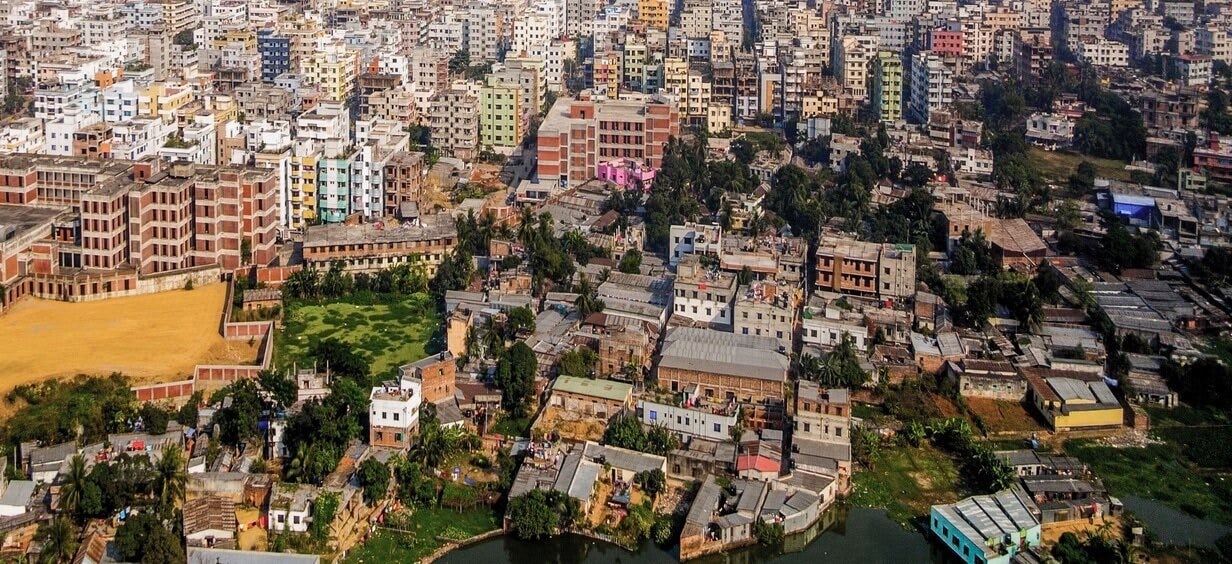
孟加拉由於其熙熙攘攘攘的城市、龐大的勞動力、廉價的勞動成本,以及不斷成長的經濟,是國際業務擴張的吸引力所在。 其鬱鬱蔥蔥的自然景觀和令人屏息的野生動物,包括國家動物,雄偉的孟加拉老虎,可以讓孟加拉的生活和商業成為一生難得的機會。 該國也擁有最長服務時間的頂級女性國家元 首 — 首相 Sheikh Hasina。
隨著您的公司擴展到孟加拉,您應該熟悉相關的勞動法和最佳聘僱實務。 為了協助您,我們制定了此 指南,以聘僱國內員工。 我們將討論合約聘僱、解釋聘僱的各種成本,並提供在孟加拉聘僱的一般提示。
在孟加拉聘僱前須知事項
在您開始聘僱之前,您將需要對離職和遣散、薪資和稅金、休假和福利政策等主題有徹底的瞭解,以及其他聘僱和就業的細微差別。 以下是一些需要考慮的要點:
1. 僱傭契約
孟加拉的就業法要求雇主為其員工建立正式的書面合約。 合約應使用當地語言,並定義下列詞彙:
- 職位和工作性質
- 報酬
- 工作時數
- 員工福利
- 結束聘用要求
孟加拉員工在接受完全解雇保障之前,會經過試用期。 對於大多數員工而言,試用期為三個月,而對於文書工作者而言,試用期為六個。試用期 之後,公司可以基於以下幾個原因,以最少的通知終止其員工:
- 犯下犯罪或其他不當行為
- 身體或精神喪失能力
- 經醫療專業人員認證的慢性醫療狀況
- 公司緊縮以盡量減少損失
員工被判有犯罪行為或不當行為,無權獲得通知或遣散費。 因醫療原因而解雇的員工,必須獲得每年為公司服務的薪資30天數。 受限制員工必須收到一個月的通知,以及每一年服務年資的工資30天數,但有時可能會獲得額外的工資,而不是通知。
在所有其他情況下,希望解僱員工的孟加拉雇主通常必須提前 60120 天提供書面通知。 這些員工還應獲得每年服務的工資30日數,但有時也可能獲得額外的薪酬以縮短通知時間。
2. 薪資發放和稅收
與許多其他國家不同,孟加拉沒有社會安全計劃或相關的薪資稅。 員工僅負責繳納所得稅。 孟加拉有10%至30%的所得稅。
雇主負責支付企業稅 — 一般而言,如果公司是未上市的實體,則為35百分之 的稅 ,如果公司是公開上市的實體,則為25百分之 的稅。 但是,某些行業的企業稅率不同。 舉例來說,只要符合特定要求,服裝業就會為雇主提供低14百分比的企業稅率。
3. 薪資與工作時數
孟加拉的標準工作週包含 40 工作時數 。 大多數的企業都會在星期五和星期六休息。 允許加班,但法律限制每週60小時,最高年平均每週56小時。 任何加班的員工都必須獲得這些時數的雙倍薪資。
在孟加拉,最低工資因行業而異,通常非常低。 舉例來說,服裝業的工人通常每個月只帶大約 8,000 taka 到家,大約是美元94。 如果您的公司適用最低工資,您可能想查看產業指南,以確保遵守相關的勞動法。
4. 休假

孟加拉員工通常根據其特定行業累積年假,其中一些最常見的是紡織品和服裝生產、農業、造船、旅遊、通訊和技術。
例如,員工通常每 18 天就有 一天在商店、工廠、運輸業務或商業或工業場所工作。 您的公司應該與孟加拉的產業專家確認哪些要求適用。
大多數員工每年也會獲得額外的10帶薪休假,但茶園員工不會。 此帶薪休假將在年底到期 — 未使用全部休假分配的員工將失去該休假。
孟加拉員工將獲得 14 天的帶薪年病假。 報紙員工是本規則的例外情況,只要他們的休假時間比目前為止1/18th的就業期還短,他們可能要以半薪病假。 各行各業的員工通常必須出示醫療證明,以驗證帶薪病假的使用。
孟加拉也為其員工提供產假。 已經在公司工作至少六個月,但還沒有兩個或更多孩子的懷孕員工,可以在出生前八週帶薪休假,並且必須在出生後額外八週。 不符合這些要求的員工仍可休無薪假。 陪產假為選填。
除了帶薪休假外,孟加拉員工每年都會獲得11帶薪節日休假。 每家公司可以從較長的國定假日清單中選擇十一個假日。 如果公司要求員工在其中一個假日工作,則必須提供替代假日以及兩個帶薪假日。
5. 反歧視法和限制
孟加拉的憲法命令所有公民在法律上平等。 公司不得因下列任何原因歧視求職者或員工:
- 民族
- 性別
- 宗教
- 出生地
- 種姓
為避免出現聘僱歧視,貴公司應避免在面試期間詢問應徵者有關這些主題的問題,並應量身訂做其語言,以確保所有員工都能享有友善的環境。
在孟加拉聘僱員工的成本

在孟加拉 僱用員工的費用 因產業和公司政策而異,例如福利和津貼等可選費用。 以下是您在聘僱時預期會發生的一些直接和間接成本:
- 招聘廣告
- 應徵者審查與面試所花費的時數
- 薪水
- 員工福利
- 獎金
- 保險
- 雜項津貼
每位在公司工作超過一年的員工都有權獲得兩次年度節慶獎金。 兩者皆不應超過員工的基本月薪。
許多公司也為員工提供額外福利作為津貼。 這些可能包括住房補助、教育補助、交通津貼或私人健康保險。
一般而言,保險福利由雇主決定。 孟加拉有公共/私人醫療系統,因此員工在需要時可以接受公共醫療。 非政府組織經常填補醫療體系的差距,尤其是在更多農村地區。 不過,您的公司可能希望提供私人保險福利,使您的職位更吸引求職者。
孟加拉的聘僱實務
在孟加拉聘僱人員可能合理類似於在您所在國家聘僱新員工。 即使如此,您還是可能遇到一些陌生的細微差別,您應該做好準備。 以下是在您開始工作時需要考慮的一些招聘實務:
- 使用當地語言和貨幣:您的孟加拉新員工可能曾在學校研究過您的部分母語。 然而,最佳做法建議您盡可能多地使用孟加拉語,尤其是在合約和錄取通知書等正式文件中。 在這些文件中,您也應該以孟加拉太卡而不是您本國的貨幣來支付所有金額。 採用這些做法有助於您歡迎員工,讓他們感到受到重視,並確保他們瞭解其工作的基本細節。
- 精通專業人際網絡和線上工作網站: 當您開始在孟加拉招募人才時,您會希望採用值得信賴的招募方式。 專業人際網絡做法和線上職缺公告都可以幫助您吸引有才華的應徵者。 如果您在國內有可靠的聯繫,請仰賴這些聯繫尋求建議,或讓您的招聘經理參加職業博覽會或大學就業博覽會。 您也很可能會想在線上發佈求職廣告,以便您可以利用更廣泛的應徵者庫。
- 檢查集體談判協議 (CBA): 集體談判協議在孟加拉比在許多其他國家少見。 主要例外是服裝產業,近年來 CBA 變得更加常見,隨著產業的發展,CBA 可能會變得更強大。 如果您的業務涉及服裝或紡織品,請務必瞭解哪些額外的 CBA 要求適用於您的公司。
- 選擇長期合作夥伴: 您希望在孟加拉的業務營運能持久且蓬勃發展,因此您需要適合組織的長期員工。 您也可能依賴孟加拉員工對當地文化和商業規範的見解,因此選擇能夠幫助您公司成長和發展的人員也是一大優勢。
公司在孟加拉需要什麼僱用員工?
在孟加拉聘僱新員工通常是費力、耗時的過程,尤其是如果您的公司選擇在該國設立子公司時。
如果您選擇以有限責任公司的形式設立子公司, 您將需要滿足以下幾項要求:
- 指定您的股東和董事
- 驗證貴公司的正式名稱
- 列印股份公司與公司註冊登記處出具的許可證明
- 取得組織章程及組織備忘錄
- 開立孟加拉銀行帳戶
- 取得兌現證書作為貨幣兌換證明
- 存入股本大約等於 一美元 或以上
- 向孟加拉所得稅管理局提交經審計的年度財務報告

這些流程可能需要數週的時間,並為您的企業付出數千美元的代價。 您將需要熟悉新法律,並可能聘請律師來幫助您滿足這些要求。例如,與孟加拉銀行系統 合作,通常對國際公司來說是具有挑戰性的,因為許多銀行都難以處理全球商業交易。
或者,您也可以選擇與 Globalization PartnersGlobal Employment Platform合作,幫助您的公司簡化和加快您的營運、招聘和招聘。 透過我們的 AI 驅動技術,您可以輕鬆遵循該國的監管要求。 我們的平台將幫助您瞭解 新員工招聘和入職的官僚要求,以便您專注於新企業的主要業務方面。
在孟加拉聘僱遠端員工
當您招募和考慮申請者時,與孟加拉的距離可能意味著您與頂尖候選人遠端交談,而不是親自交談。 以下是幾個成功流程的秘訣:
- 利用您的技術練習:即使是在許多時區以外,您還是要對孟加拉工作候選人留下良好的印象。 如果您不常使用遠端通訊平台,請務必在面試前進行測試。 如此一來,您就能事先解決任何網際網路問題,並關閉任何不需要的濾鏡,以呈現精緻專業的形象。
- 輕鬆安排時間:您的孟加拉申請人可能和您一樣忙碌。 當您嘗試減少跨時區的面試時間時,來回發送大量電子郵件可能會花費您一天中和他們的大量時間。 相反地,請考慮使用預約設定軟體,以便您的候選人可以從可能的時間清單中選擇。 您可能可以節省時間並提高您的生產力,而您的申請人將非常感謝您的方便。
- 專注於直接的溝通:使用網路面試平台有時可能會加劇溝通挑戰,尤其是在音訊品質下降的情況下。 要清楚和直接,同時傳達您對候選人的尊重和感謝,對話可能會順利進行。
- 直接聯絡: 即使您的面試流程是從遠端進行,您的公司還是可能希望派高層主管到孟加拉辦事處,以團隊方式問候和引導您的新員工。 這個面對面的聯繫將讓您的新員工感到受歡迎、建立團結和一致性,並讓新企業有個正面的開始。
- 讓您的第一名新員工開始盤點: 隨著您的公司擴展到孟加拉,您的 第一位新員工 將為成長中的團隊定下基調。 您可能已經投入大量時間和精力,為您的國際營運尋找最佳人才,當您開始在孟加拉進行遠端聘僱時,您會希望加倍努力。 尋找符合貴公司核心價值的應徵者,以及能夠為您的團隊帶來彈性技能、領導力和多元化的應徵者。
Globalization Partners 值得信賴的國際技術
當您的公司準備擴展業務時,請轉到 Globalization Partners。
當您與我們合作時,我們會負責建立您的公司,並依序安排您的聘僱實務工作。 使用我們 AI 驅動Global Employment Platform,您不再需要處理所有新員工的聘僱、聘僱和到職工作,節省您的時間和人力。 我們在導覽複雜的法律和稅務要求方面也擁有豐富的經驗,因此我們可以讓您放心瞭解您的實務符合規定。











